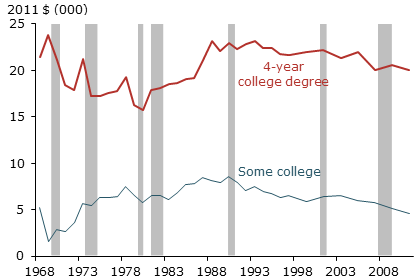The Mindset List
I am such a mark for Beloit College's annual Mindset List, a look at some of the important and sometimes really surprising changes that have occurred in the last 18 years or so, or expressed differently, just how much differently this year's crop of college freshmen have experienced and view the world compared to us older folks.
Right off of the bat, Beloit reminds us that this new group of students, (mostly born in 1987), have never known a world where hybrid cars were not mass produced, South Park has not always been on TV, and among those who have never been alive in their lifetimes are Princess Diana, Notorious B.I.G., Jacques Cousteau, and Mother Teresa.
The Mindset List is always an interesting read every year, but the odd thing about the list is that while it describes and highlights the world view and perspectives of 18 year olds, they are the ones who are likely the least interested in the actual contents of the list. Their world and world view is just what it is. They don't stop to try and think of or conjure up a time where free Wifi did not exist in every Starbucks in the world. It is the modern version of the classic 'I had it much worse than you' line that every parent in every generation for the entire history of time has at one point leveraged to try to make their children feel guilty about how good they have things.
I am serious, the first evidence of this phenomenon in recorded history was from some primitive cave drawings and inscriptions found in France. Loosely translated, they read, 'Sure kid, it's so easy to kill that antelope with that accurate, sharpened spear. When I was your age, all we had to fight for our lives with was a big rock.'
These kinds of admonitions have only weakened over time. I can recall on more that one occasion lamenting to my son that he did not understand how good he actually had things, since when I was his age my TV remote WAS ACTUALLY ATTACHED TO THE TV WITH A LONG CORD.
Hard times for sure.
There are some real gems on the Mindset List for this year of course, here are a couple of my personal favorites. Incoming college freshmen:
They have never licked a postage stamp.
When they were born, cell phone usage was so expensive that families only used their large phones, usually in cars, for emergencies.
Their proud parents recorded their first steps on camcorders, mounted on their shoulders like bazookas.
There are plenty more gems like that on the list, and I recommend taking a few minutes to take a look at the entire piece.
I know it is a little obvious, and maybe seems kind of unimportant to most of us but it is really, really easy to lose sight of just how much the world and technology and society and work and everything else changes in a relatively short time.
It is good, no matter how old or young we are, to think about how folks not quite like us see and understand the world.

 Steve
Steve



